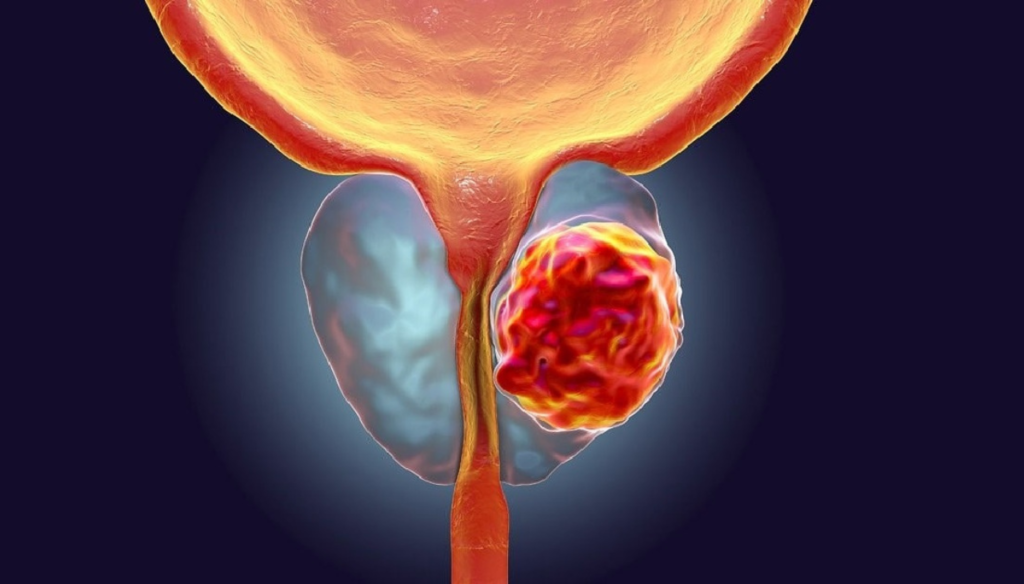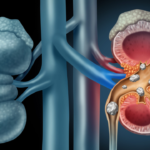
Prostate cancer is a significant health concern for men worldwide. It is crucial for individuals diagnosed with prostate cancer and their loved ones to comprehend the stages and grading of this condition. This knowledge is fundamental for making informed decisions about treatment options. In this guide, we will delve into the complexities of prostate cancer staging and grading, shedding light on the roadmap for effective treatment. For those seeking expert guidance and care in Wakad, Pune, Dr. Dhake, a distinguished urologist, offers specialized services at Dr. Dhake Urology Clinic. His expertise and commitment to patient well-being make him an invaluable resource in navigating the challenges of prostate cancer diagnosis and treatment.
Prostate Cancer Staging:
Staging is the process of determining the extent of cancer spread in the body. The system commonly used for prostate cancer staging is the TNM system, which stands for Tumor, Nodes, and Metastasis.
Tumor (T):
This element assesses the size and extent of the primary tumor. T1 indicates a small, localized tumor, whereas T4 suggests a tumor that has spread to nearby structures. Understanding the T stage is crucial for determining the appropriate treatment approach.
Nodes (N):
Nodal involvement is denoted by the N stage. It signifies whether cancer has spread to nearby lymph nodes. The absence of node involvement is denoted by N0, while N1 suggests the presence of cancer in the lymph nodes.
Metastasis (M):
Metastasis indicates whether cancer has spread to distant organs. M0 means no distant metastasis, while M1 signifies the presence of metastasis. The combination of T, N, and M stages results in an overall stage classification ranging from I to IV, with higher stages indicating more advanced cancer.
Prostate Cancer Grading:
Grading is the process of evaluating the aggressiveness of cancer cells. The Gleason score is commonly used for prostate cancer grading and ranges from 2 to 10.
Gleason Grading:
The Gleason score is based on the microscopic appearance of cancer cells in the prostate tissue biopsy. A lower Gleason score (2-6) indicates well-differentiated, less aggressive cancer cells, while a higher score (7-10) suggests poorly differentiated, more aggressive cells. Understanding the Gleason score is crucial for tailoring treatment plans to the specific characteristics of the cancer.
Treatment Roadmap:
The treatment approach for prostate cancer depends on the combined assessment of staging and grading.
Active Surveillance:
For low-grade, early-stage prostate cancer, active surveillance may be an option. This involves close monitoring of the cancer with regular check-ups and imaging, with the option to initiate treatment if the cancer progresses.
Surgery:
Prostatectomy, or surgical removal of the prostate, may be recommended for localized cancer. This can be a curative option, especially for tumors confined to the prostate.
Radiation Therapy:
Radiation therapy, using high-energy rays to target and kill cancer cells, is a common treatment for localized and locally advanced prostate cancer. It can be employed either independently or in conjunction with surgical intervention.
Hormone Therapy:
Hormone therapy aims to reduce the levels of male hormones (androgens) that fuel the growth of prostate cancer cells. It is often employed in advanced stages or when surgery and radiation are not curative.
Conclusion:
In conclusion, gaining insights into the stages and grading of prostate cancer is pivotal for individuals facing this diagnosis. By comprehending the intricacies of cancer progression and aggressiveness, patients and their healthcare teams can formulate personalized treatment plans that maximize effectiveness while minimizing side effects. This knowledge empowers individuals to make informed decisions on their journey towards managing and treating prostate cancer. For expert guidance and care, individuals can consider consulting with Dr. Dhake, a renowned urologist in Wakad, Pune, at Dr. Dhake Urology Clinic. Dr. Dhake’s expertise and personalized approach contribute to a comprehensive and effective strategy for prostate cancer management.




